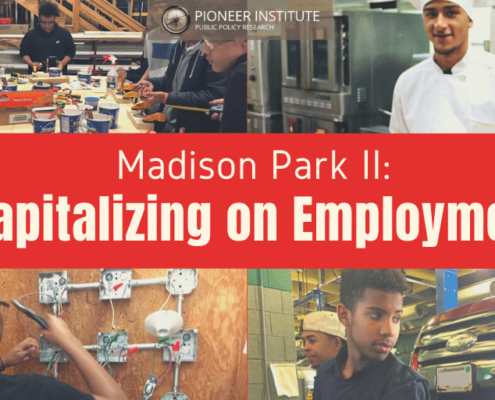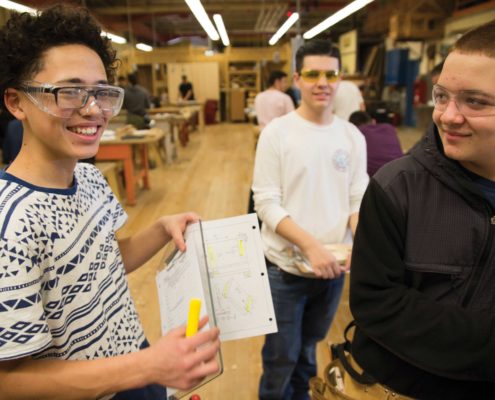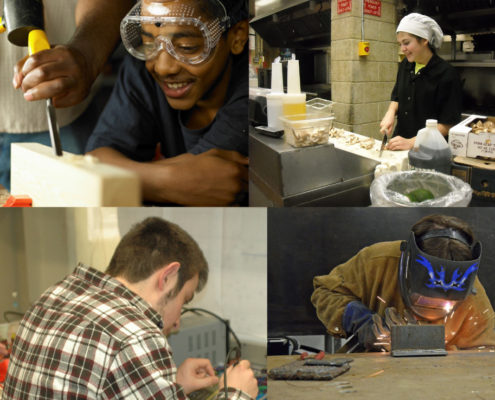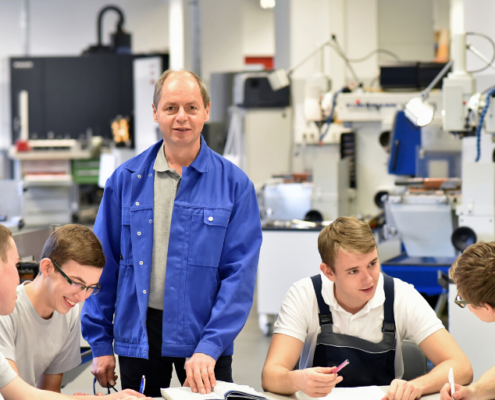
Two Stars in a Glowing Voc-Tech Education System
“A Tale of Two City Schools: Worcester Tech and Putnam Academy Become Models for Recovery” is a new white paper by Pioneer Institute that analyzes how Worcester Tech and Putnam Academy — schools with high numbers of low-income and special needs students — leapt from the bottom of Massachusetts voc-tech rankings to become leaders among local schools.

Madison Park II: Capitalizing on Employment Opportunity
This report reviews the co-operative education program at Boston’s Madison Park Technical Vocational High School, which places students in paid positions with local employers. The study finds that the program lags far behind other Massachusetts vocational-technical schools in terms of both placements and number of employer contacts. But with the school as a whole beginning to improve after years of turmoil, the co-op is also showing promising signs.

Madison Park Technical Vocational High School Turnaround Update
Four years after it began to implement a turnaround plan, Boston’s Madison Park Technical Vocational High School is showing clear signs of progress, but its performance continues to lag behind that of other vocational-technical schools in Massachusetts, according to a new study published by Pioneer Institute.

The Healing Hand: Modeling Catholic Medical Vocational-Technical Schooling
0 Comments
/
This study explores whether medical vocational-technical education could be a tool to help Boston-area Catholic schools address declining enrollment and also provide economically disadvantaged students with skills that are in high demand among employers.

Expanding Access to Vocational-Technical Education in Massachusetts
This paper explores why vocational education has become such a popular option in Massachusetts, and why 52 Bay State cities and towns do not have access to either district or regional career vocational technical programs. It also examines funding for vocational- technical education. While vocational-technical education is more expensive than traditional high school, it would cost the state less than ½% of the FY16 education budget to provide 5,000 more CVTE placements in Massachusetts.

Filling the Skills Gap: Massachusetts Vocational-Technical Schools and Business Partnerships
Society is recognizing that in today’s economy, many graduates of four-year liberal arts colleges are looking for work, while students from career vocational technical schools are finding high-skill, high wage jobs. Why? Because they have marketable, industry-sanctioned competencies and employability skills.

Hands-On Achievement: Why Massachusetts Vocational Technical Schools Have Low Dropout Rates
More than one million students drop out of high school in the United States each year, setting them on courses of lost income, diminished health, and increased odds of incarceration. Collectively, their decision costs the nation hundreds of billions of dollars in lost revenue, lower economic activity and increased need for social services.

Vocational-Technical Education in Massachusetts
Massachusetts, a pioneer in many ways, has always been at the forefront of vocational technical education. A century ago, the Smith Vocational and Agricultural High School opened in Northampton. Smith is still operating today, and is the forerunner to a mode of education that remains vitally important to the state’s workforce. Massachusetts’ Vocational-Technical Education (VTE) is a unique method of academic, career, and extracurricular activity that creates a comprehensive blend of opportunity and advancement.
